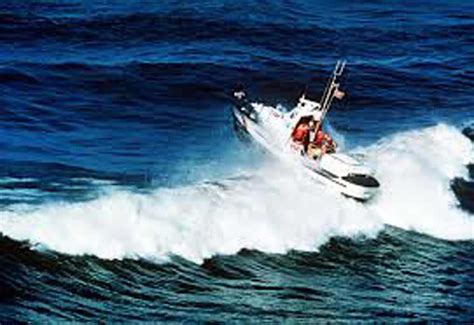How To Drive A Boat In Rough Water
Ronan Farrow
Mar 31, 2025 · 3 min read

Table of Contents
How to Drive a Boat in Rough Water: A Comprehensive Guide
Navigating a boat in rough water can be daunting, even for experienced captains. Understanding the challenges and employing the right techniques is crucial for a safe and successful journey. This guide will equip you with the knowledge and strategies to confidently handle your boat in choppy seas.
Understanding the Challenges of Rough Water
Before we delve into the techniques, let's acknowledge the inherent dangers of rough water boating. These include:
- High Waves: Large waves can toss your boat around, causing jarring impacts and potential damage.
- Strong Winds: High winds increase wave size and create unpredictable currents, making steering difficult.
- Reduced Visibility: Spray and foam can significantly reduce visibility, increasing the risk of collisions.
- Increased Risk of Capsizing: Rough seas increase the likelihood of your boat capsizing, especially smaller vessels.
Essential Preparation Before Embarking
Proper preparation is paramount to safe boating in rough water. Before you set sail, ensure you've taken these steps:
- Check the Weather Forecast: This is non-negotiable. Understanding wind speed, wave height, and potential storms is crucial for making informed decisions. Don't underestimate the power of nature!
- Inspect Your Boat: Check for any damage or loose parts that could worsen in rough conditions. Ensure all safety equipment is properly secured and functioning.
- Inform Someone of Your Plans: Let a trusted friend or family member know your itinerary, expected return time, and the route you plan to take.
- Ensure Adequate Fuel: Rough water requires more power, so carry extra fuel to avoid running out at sea.
- Pack Necessary Supplies: Have plenty of water, snacks, first aid kit, flares, and any other survival gear appropriate for the conditions.
Essential Techniques for Navigating Rough Waters
Now for the practical aspects. Here are some key techniques to employ when driving a boat in rough water:
Steering and Speed Control:
- Reduce Speed: This is arguably the most crucial point. Slowing down significantly reduces the impact of waves.
- Maintain a Steady Course: Avoid sudden movements that can destabilize the boat. Smooth, controlled inputs are key.
- Angle into the Waves: When possible, angle your boat slightly into the oncoming waves to meet them head-on, reducing the impact. Avoid broaching (being turned broadside to the waves).
- Use the Throttle to Control Pitch: Gently adjusting the throttle can help minimize the boat's bouncing and pitching motion.
Seamanship and Awareness:
- Constant Vigilance: Pay close attention to wave patterns, wind direction, and your boat's response. Be ready to react quickly to changing conditions.
- Maintain a Lookout: Keep a sharp eye out for other vessels, debris, and potential hazards.
- Know Your Boat's Limitations: Understand your boat's capabilities and avoid pushing it beyond its limits in rough conditions.
- Use the Trim Tabs (if equipped): Trim tabs can help maintain level posture and improve handling in choppy water.
When to Turn Back
Safety should always be your top priority. Don't hesitate to turn back if:
- Conditions exceed your boat's capabilities.
- You feel uncomfortable or unsafe.
- The weather forecast indicates worsening conditions.
- You encounter unexpected difficulties.
Turning back is not a sign of weakness; it's a demonstration of sound judgment and a commitment to safety.
Mastering Rough Water Boating: A Journey of Experience
Driving a boat in rough water is a skill developed through practice and experience. By consistently applying these techniques and prioritizing safety, you'll gain confidence and enjoy the thrill of navigating challenging conditions. Remember, preparedness, respect for the sea, and a cautious approach are vital for a successful and safe boating experience in rough water.
Featured Posts
Also read the following articles
| Article Title | Date |
|---|---|
| How To Get Married In Canada As A Foreigner | Mar 31, 2025 |
| How To Get Prescribed Vyvanse Without Adhd | Mar 31, 2025 |
| How To Fix A Boost Leak | Mar 31, 2025 |
| How To Dress For A 50s Party | Mar 31, 2025 |
| How To Find Azv Number | Mar 31, 2025 |
Latest Posts
-
Palworld How To Set Admin Password
Apr 03, 2025
-
P1df3 How To Fix
Apr 03, 2025
-
Mother Half Pipe This Is How I Roll
Apr 03, 2025
-
Mommed Pregnancy Test How Early
Apr 03, 2025
-
Mary Oliver How I Go To The Woods
Apr 03, 2025
Thank you for visiting our website which covers about How To Drive A Boat In Rough Water . We hope the information provided has been useful to you. Feel free to contact us if you have any questions or need further assistance. See you next time and don't miss to bookmark.
